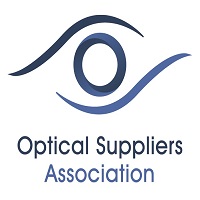Charity News
Royal National Institute of Blind People Scotland’s new service
Royal National Institute of Blind People Scotland’s new service
A new service to help and support people in Dumfries and Galloway facing a diagnosis of sight loss is being launched this week
“Being told you are going to lose some or even all of your sight can be devastating news,” says James Adams, director of national charity RNIB Scotland. “For the doctor and healthcare team, a diagnosis can be pretty much the end of the story. For the patient, however, it’s just the start of a journey into unknown and often rather frightening territory.”
That’s where Eye Care Liaison Officers (ECLOs) can help, a service managed in hospitals by RNIB and other providers. They offer emotional reassurance along with practical advice and support to help people make the adjustment to living with sight loss, by maximising their confidence and everyday independence.
New ECLO, Fiona Ettle, joins NHS Dumfries and Galloway this week, which will mean every health board in Scotland now has this vital service. As people can go through a whole range of emotions such as shock, denial, anger, fear and grief, ECLOs help patients talk through their concerns. When the person is ready, they can give advice on how to lessen any impact their eye condition may have on daily life.
One such patient (78) who now lives in Dumfries previously received ECLO support when residing in Ayrshire. “I had my first interaction with my ECLO, Alex, earlier this year, and she was wonderful with me,” she said. “She was very cheery, uplifting, and helpful.
“It’s in the last year that my sight has worsened, and I’ve lost an awful lot of confidence because of it. But I’ve joined a few RNIB support groups which Alex pointed me towards and we all have a chat, and that helps with confidence.
“It’s a very valuable service. It makes people feel like they are not alone, that somebody is there. If you have any worries or anything, you just contact them and have a chat.
“I think the new service in Dumfries and Galloway will be a great help to people like me. It’ll give them the confidence to know they’ve got somebody that can back them up and keep in touch with them. It’s hugely important that there’s someone there not just for the medical side, but for everything else- the emotional side, and getting the support that someone needs.”
Eye clinics are among the busiest out-patient departments in hospitals, and hard-pressed health professionals often simply don’t have the resources to offer this often-intensive one-to-one support.
Derek Beeton, senior charge nurse for ophthalmology, notes the difference this will make to colleagues in NHS Dumfries and Galloway,
“The addition of an ECLO service to our department will be of huge benefit to countless patients moving forward,” says Derek. “It is a great example of positively and effectively bridging the gap between health and social care for the benefit of patients.
“Despite ongoing innovations and developments, sight loss sadly continues to be something many patients face and can have a profound impact on their level of independence and wellbeing. The introduction of an ECLO will provide our patients, their relatives and carers with the practical and emotional support necessary to understand their diagnosis, adapt to living with sight loss, and ultimately retain as much of their independence as possible.”
This vital addition to eye care services will provide valuable support for those in the region, adds Somar Ferguson of the Sensory Support Team within Dumfries and Galloway Council,
“We welcome RNIB Scotland to Dumfries and Galloway and value this excellent development and resource for our sight loss community. Their ECLO will complement and connect existing services for people with sight loss and will act as a bridge between hospital-based eye services and our community-based Sensory Support Team.
“Working together we will ensure that people with sight loss are provided with support and information and vision rehabilitation when it is needed most.”



















